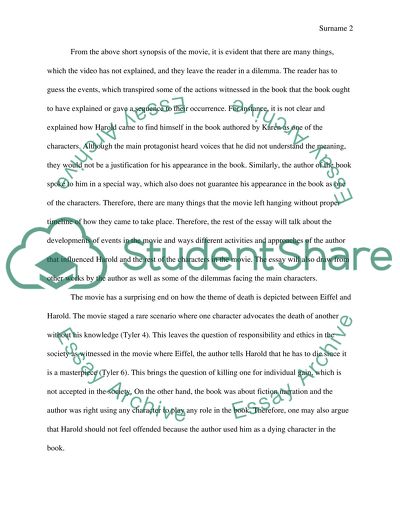Cite this document
(Stranger than Fiction Movie Review Example | Topics and Well Written Essays - 2250 words, n.d.)
Stranger than Fiction Movie Review Example | Topics and Well Written Essays - 2250 words. Retrieved from https://studentshare.org/visual-arts-film-studies/1671388-stranger-than-fiction-argument-essay
Stranger than Fiction Movie Review Example | Topics and Well Written Essays - 2250 words. Retrieved from https://studentshare.org/visual-arts-film-studies/1671388-stranger-than-fiction-argument-essay
(Stranger Than Fiction Movie Review Example | Topics and Well Written Essays - 2250 Words)
Stranger Than Fiction Movie Review Example | Topics and Well Written Essays - 2250 Words. https://studentshare.org/visual-arts-film-studies/1671388-stranger-than-fiction-argument-essay.
Stranger Than Fiction Movie Review Example | Topics and Well Written Essays - 2250 Words. https://studentshare.org/visual-arts-film-studies/1671388-stranger-than-fiction-argument-essay.
“Stranger Than Fiction Movie Review Example | Topics and Well Written Essays - 2250 Words”, n.d. https://studentshare.org/visual-arts-film-studies/1671388-stranger-than-fiction-argument-essay.


